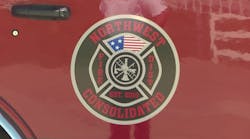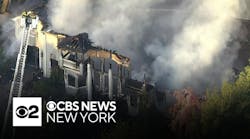July 12--California must thoroughly overhaul the way it regulates oil refineries if the state hopes to prevent another major fire like the one that struck Chevron's Richmond facility last year, according to a long-awaited government report issued Thursday.
The many state agencies that oversee refineries -- offices that regulate everything from workplace safety to air pollution -- should coordinate their work through a single, permanent task force, according to the report.
They also should adopt stiffer penalties for refineries that break the rules, and develop ways to monitor air quality in real time when fires occur.
Those were among the recommendations made by the Interagency Working Group on Refinery Safety, a panel convened by Gov. Jerry Brown in response to the Aug. 6 Chevron refinery fire. The blaze, which began after hydrocarbons leaked from a badly corroded pipe, hobbled one of California's largest sources of gasoline, spread a plume of black smoke across the East Bay and sent thousands of Richmond residents to local hospitals complaining of breathing problems.
"We understand it's our obligation to ensure that refinery workers and the public are safe and not put at risk by the operations of the refinery," said Matt Rodriquez, secretary of the California Environmental Protection Agency, one of 13 agencies and departments participating in the working group.
Communication called key
"One of the things we found here is communication is the key," he said. "We want to improve the communications between the public and the agencies, and between the agencies and the refineries."
The recommendations drew cautious praise from some of the groups pressing for tighter refinery oversight.
"I would say that if and when these recommendations are implemented, they absolutely would make us safer," said Greg Karras, staff scientist with Communities for a Better Environment, which has frequently sparred with Chevron over the Richmond refinery.
"There is, so far, no meaningful implementation plan for making that happen," he said. "These same promises have been made over years and decades, and they're allowed to break down."
A Chevron spokeswoman declined to comment on the report, referring calls instead to the Western States Petroleum Association, a trade group. The association's executive director said the group was still studying the report but was committed to making sure refinery employees and nearby communities were safe.
"We imagine there will be recommendations in here that we'll find challenging," said Catherine Reheis-Boyd. "We're committed to safety, and we will work through these recommendations."
For eight months, the working group met with labor leaders, community members and oil industry executives, delving into what went wrong in Richmond and ways to prevent future fires.
The report gives a blunt, harsh assessment of refinery safety in California. Refinery workers told the group that equipment corrosion is "pervasive," with too little preventive maintenance performed. Management complained about patchwork regulation from a host of state agencies.
The Richmond fire pointed up other problems.
The refinery's own fire crew wasn't using the same radio frequency as the public fire agencies responding to the scene, according to the report.
Refinery managers and public safety agencies didn't set up a single, unified command center during the emergency. Many nearby residents didn't receive notice about what was happening. All of those problems must be fixed, according to the report.
Interagency task force
The working group calls for creating a permanent Interagency Refinery Task Force within Cal EPA by Sept. 1. The task force would coordinate the work of all the state agencies and offices with a hand in regulating refinery operations, ensuring they all have access to the same information.
The task force would also have a single refinery information officer who would serve as the public's main point of contact for any issue related to refinery regulation and safety.
Some of the recommendations, however, lack specifics.
For example, the report calls for increasing penalties for violating the state's health, safety and environmental laws. Many California officials were outraged when the state fined Chevron nearly $1 million over the fire, saying the penalty was far too low. But the report does not discuss how high the penalties should be.
David R. Baker is a San Francisco Chronicle staff writer. E-mail: [email protected] Twitter: @DavidBakerSF
Copyright 2013 - San Francisco Chronicle





